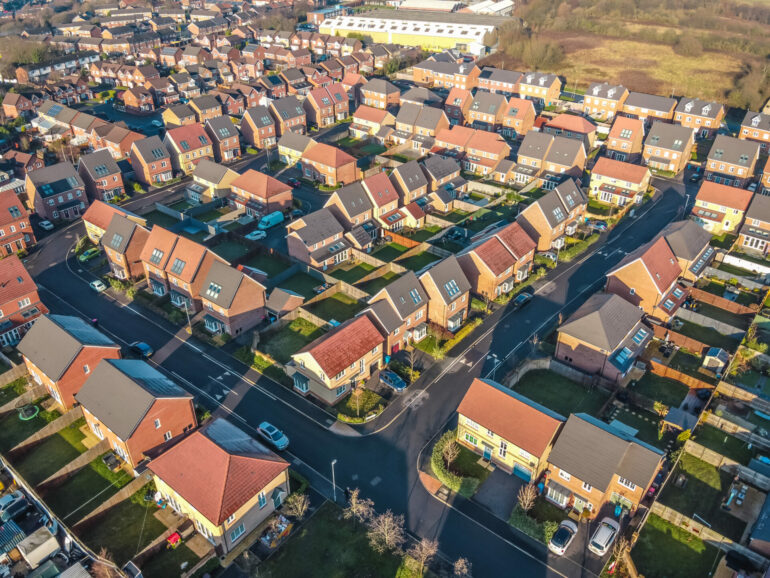The imbalance between supply and demand will continue to drive prices upwards through the spring despite growing pressures on household finances and rising borrowing costs, with the average property price in England and Wales set to hit a new record high of £389,712 in June 2022, according to the reallymoving House Price Forecast.
The supply crunch, which has seen the volume of properties for sale plummet to record lows, combined with unseasonably strong buyer demand, is preventing sale prices from falling, as would normally be expected when households experience sudden financial pressure.
Reallymoving captures the purchase price buyers have agreed to pay when they search for conveyancing quotes through the comparison site, typically 12 weeks before they complete. This enables reallymoving to provide a three-month house price forecast that historically has closely tracked the Land Registry’s Price Paid data, published retrospectively.
Based on deals already agreed between buyers and sellers, prices will rise by +4.7% in April and +6.0% in May before slowing to growth of +1.3% in June – a direct result of buyer competition for a limited supply of homes during the early months of the year.
Reports from mortgage brokers of an increase in down-valuations suggests there’s a growing mismatch between what buyers are prepared to pay to secure a property against stiff competition and what lenders are prepared to lend based on their own valuations, which could signal a turning point for the market.
With a base rate rise to 0.75% in March, making mortgages more expensive at a time when household finances are already stretched, the current run of house price growth is likely to slow later this year.
How are first-time buyers being affected?
Saving for a deposit is extremely challenging against a backdrop of sharply rising rents, shopping bills and fuel costs.
Some first-time buyers will be tempted to wait in the hope that prices will begin to fall, but it’s worth bearing in mind that house prices have risen by more than 10% compared to this time a year ago and are £66,000 higher than when the pandemic began.
Buying with a long-term view – at least three to five years – will help first-time buyers ride out any short-term fluctuations and, with borrowing costs rising, locking in a fixed-rate deal now will almost certainly save money in the long run.
Homes are selling quickly, so be prepared to move fast and ensure you have a mortgage offer in principle before you start searching.
How about downsizers?
Homeowners whose families have flown the nest may be more inclined to consider downsizing to a smaller property in light of rising fuel bills and the cost of living, particularly if they’re on a fixed income such as a pension.
Releasing equity now will help ensure they secure the maximum price for their property at a time when demand is strongest for family houses with gardens, giving them the financial flexibility to deal with rising costs and putting them in a strong position to secure a smaller property for cash or with a small mortgage.
Rob Houghton, CEO of reallymoving, said: “House price forecasts for the coming quarter suggest we’re heading into a period of strong price growth, but when taken in the wider context what we’re actually seeing are prices being inflated by a severe supply squeeze.
“This is forcing the market upwards, masking the impact of inflation and rising costs on household budgets which we would normally expect to rein in price growth.
“Having less money in their pockets will ultimately deter people from taking on more debt as they move up the ladder, and at some point in the near future this will slow house price growth.
“Much will depend on the volume of new listings we see coming onto the market and the speed at which lenders push up the price of fixed rate mortgages.”




